Hannah Robinson was 24 when she excitedly attended her leaving drinks at an up-market Sydney bar – what happened afterwards still haunts her.
It was 2018 and Hannah Robinson, 24, was eagerly planning a farewell party for herself at a trendy Sydney bar.
At the time, she was working at Ashurst, a top tier commercial law firm, and had just been seconded to the Melbourne office for a three-month stint.
For Hannah, it was a dream job, and one that brought her into the orbit of Ryan*, a Sydney-based law graduate working at a different city firm.
The two became friends, sometimes sharing meals.
So when Hannah learned she was seconded to Melbourne, it was natural that Ryan would attend her farewell.
That night drinks were flowing freely and the group of about 15 friends took advantage of the half-price happy hour. Being of small stature Hannah got drunk quickly.
“I’d had between eight and 12 drinks and was significantly intoxicated by the time Ryan arrived,” she tells news.com.au.
“Shortly after throwing up in the bathroom, a security officer approached me and asked me to leave.”
Embarrassed that the night was ending so young, and that she was being kicked out of her own farewell drinks, Hannah suggested the group kick on somewhere else. Eventually it was decided they would head back to Ryan’s house and Ubers were ordered.
“The motion of the car made me feel very sick,” Hannah says. “When the car stopped, I exited hastily and vomited in a nearby bush. I then lost my balance and fell into the bush.”
Disoriented, Hannah stumbled inside, where she made her way to the bathroom and was sick again.
“I felt like I could not hold my head up as it was spinning so much.”
She asked for a vomit bucket and glass of water.
“I lay down on the couch and remember closing my eyes. I tuned in and out of conversations and am not sure if I ever lost consciousness.”
Eventually, one by one, the other guests left.
“My friends asked me to leave with them but I felt like I couldn’t stand up. I thought I would be OK to sleep it off on the couch,” Hannah says.
But Ryan had other ideas.
For months he had been hitting on Hannah. News.com.au has sighted several messages where he declares his interest. At every point she flatly rejected him.
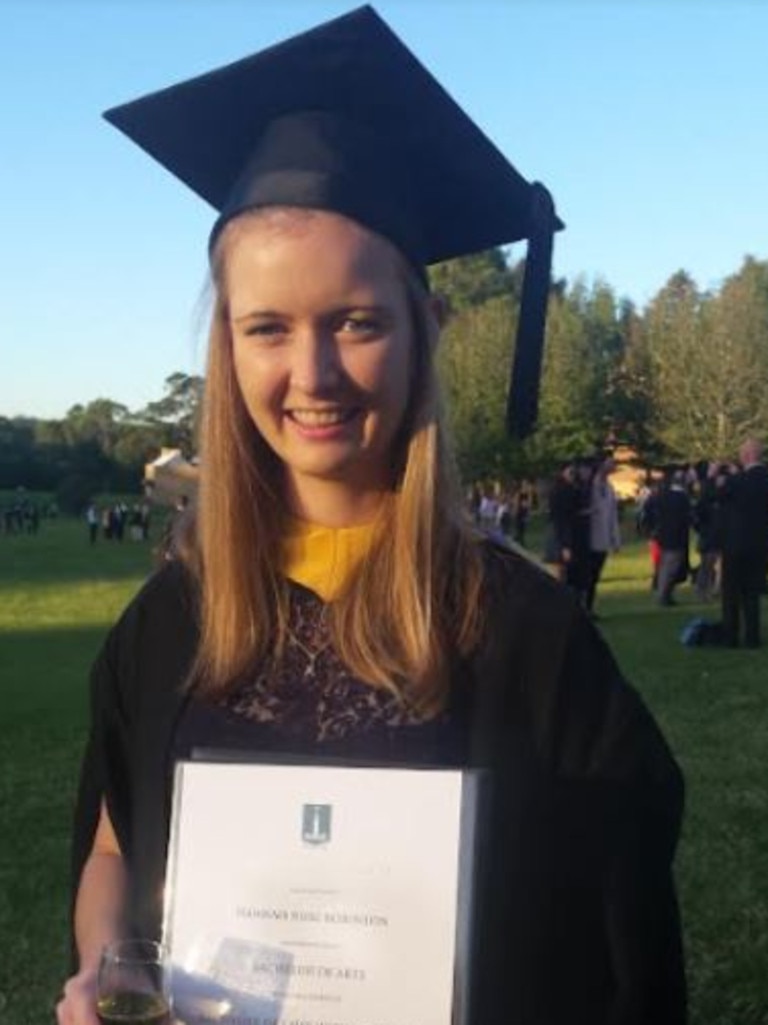
Hannah graduated from her law degree with first class honours and a bright future ahead of her. Picture: Supplied
Now, Hannah was drunk, passing out on his couch.
“He positioned himself horizontal on the couch behind me, spooning me,” Hannah says.
“I felt disoriented, tired and nauseous. He tried to kiss me on the mouth and neck.
“I recall turning my head away and saying ‘Stop, I just need to sleep’.
“He touched my breasts and tried to remove my underwear.”
Hannah told police she was indecently assaulted on the genitals and breasts.
“I said ‘no’ and ‘stop’ over and over.”
At one point she curled up in a ball on the couch, crying.
She wanted to leave but was too sick to stand up.
In messages seen by news.com.au, Ryan accepts that Hannah said “no” and was “crying” but denies any wrongdoing.
“What you and I did was regrettable and consensual,” he wrote in a later message.
Yet after that night, Hannah’s life changed completely.
She later quit her job at Ashurst and moved to Dubbo in country NSW to take up a job at Western NSW Community Legal Centre.
“People do not tend to leave top tier commercial law firms to go to Dubbo … At Ashurst, people were asking ‘oh do you have family up there?’ trying to come up with a reason for the change.”
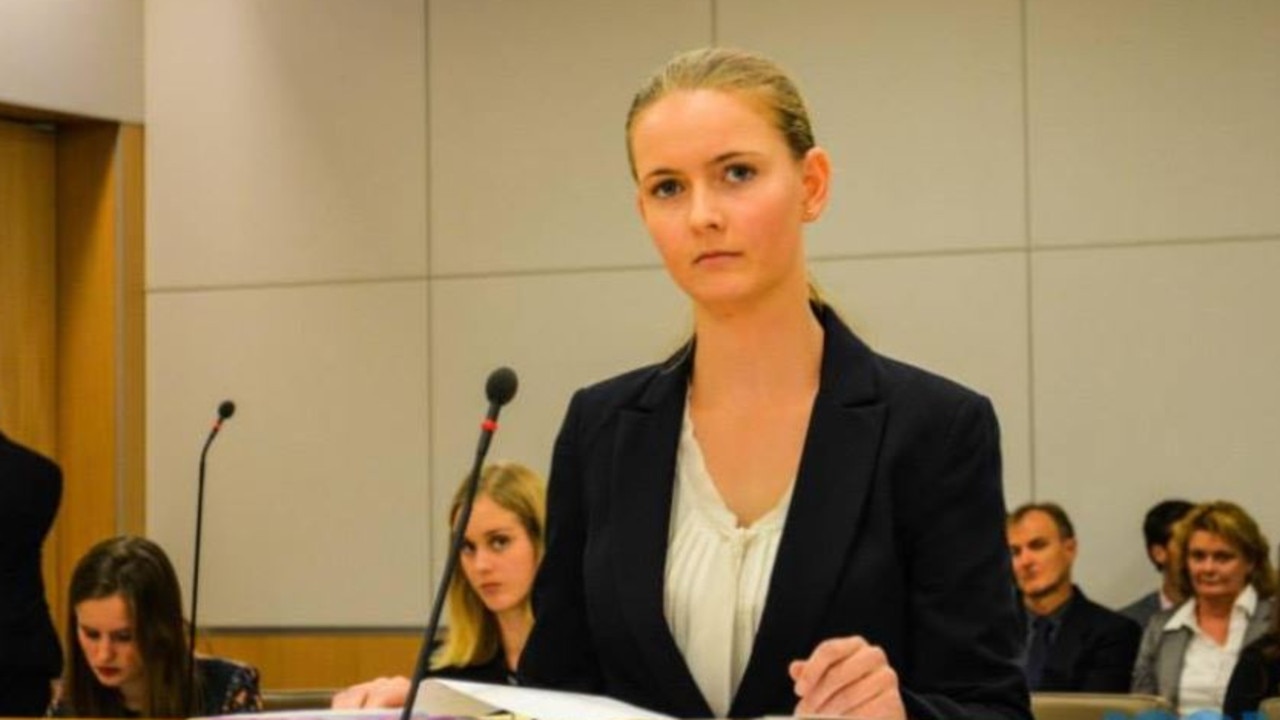
The trajectory of Hannah’s entire life changed after that night. Picture: Supplied
Dubbo couldn’t have been a more different environment.
For a while Hannah thought she had outrun the memory of that night.
“But I was seeing clients who had been through similar things, and I was advising those clients to report to the police.
“I felt disingenuous and inauthentic because I hadn’t followed [that advice] myself.”
Over time the feeling ate away at her.
“The pandemic created time for reflection,” she says. “I was working in the sexual violence space and essentially I’d formed the view that three years on from that night, I hadn’t been able to move on so I hoped reporting would give me professional and personal closure around the work I was doing.”
Finally, there was Ryan himself.
“I tried to discuss it with [him]. I sent him a message [sighted by news.com.au] saying this is my perception of what has happened, can we discuss it, and he agreed to meet up.”
But at the last moment, he changed his mind and sent Hannah a message discounting her version of events.
“Receiving those messages was very difficult,” Hannah says. “In hindsight, if he had shown some remorse and recognition of what had happened this probably wouldn’t have been reported to police. His response, his lack of empathy concerned me.
“I thought if he thinks that was consensual then he could do it again to someone else.”
I was the perfect complainant
And so it was that in June 2021, Hannah found herself at a police station armed with a USB. It contained seven neatly labelled folders with evidence she had collected including a statement, photographs, and various screenshots of text and Facebook messages.
“I knew what I was doing,” she says.
Ryan was arrested, charged with “assault with act of indecency” and the matter was listed for a hearing in May 2022.
“Going into it, I knew there were going to be delays,” she says.
“What I didn’t predict was just how demoralising and excruciatingly slow the whole process was going to be.”
The case started on a Friday and Hannah spent all day being questioned.
“The best advice I had been given was ‘you cannot win cross-examination. The more you say, the more they will question you.’
“Absolutely everything you say can be used to attack credibility: if you speak back to correct misinformation you are being ‘argumentative’. If you use a different word in court to what you used in your police statement, you are torn apart for being inconsistent. But if you use identical language then you are accused of memorising. There is no way to win.
“I was portrayed as a young, flippant flirtatious girl who went out drinking.
“I was made to feel guilt and shame for ‘dobbing in a friend’.”
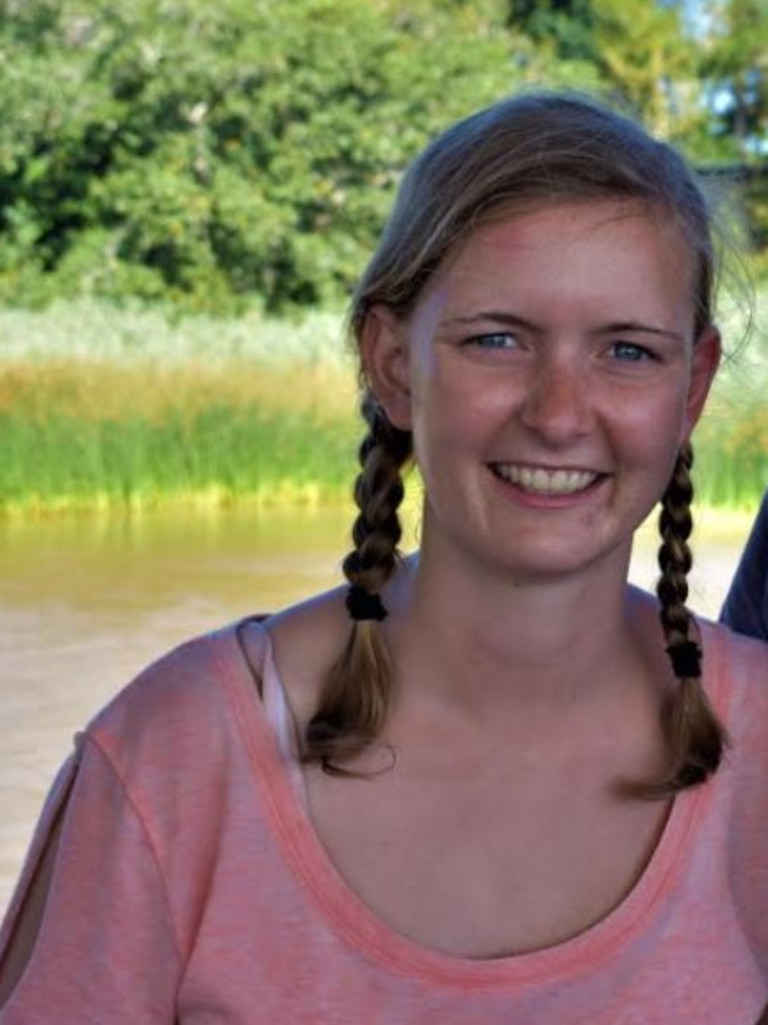
Hannah described herself as ‘the perfect complainant’. Picture: Supplied
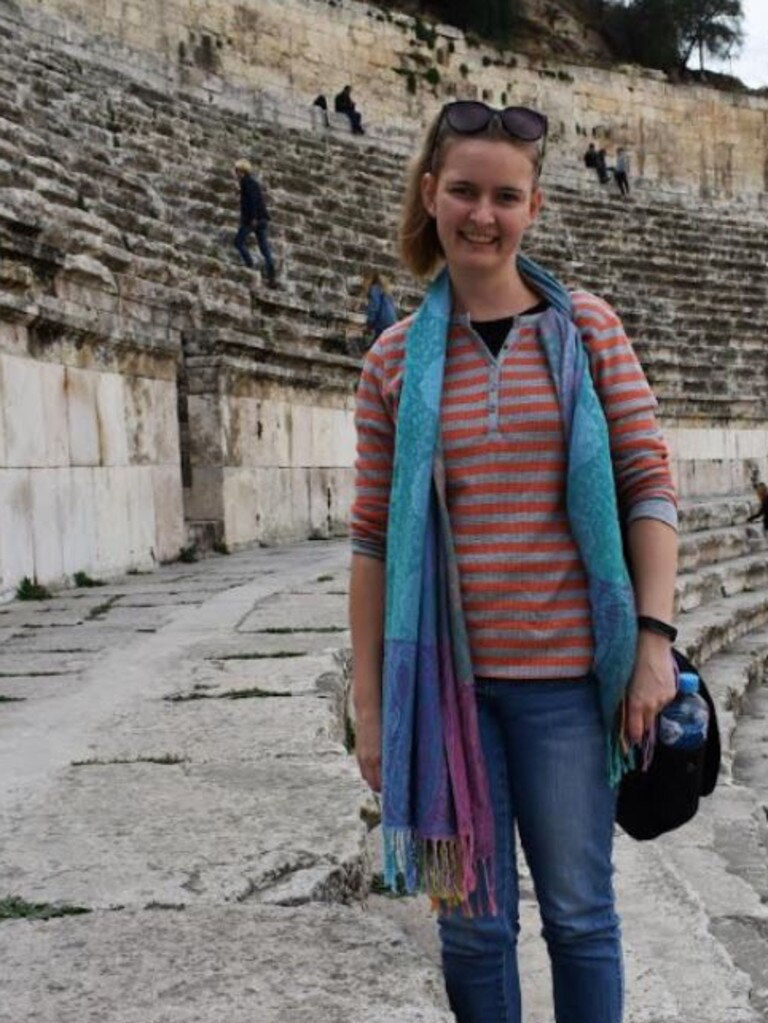
She presented the police with a USB of evidence. Picture: Supplied
When the Friday ended, Hannah’s evidence hadn’t.
This meant that over the weekend she was still under oath, and couldn’t talk freely about what was happening, at risk of being found in contempt.
“You can’t say a thing. I spent most of that weekend alone and in bed. It was the worst weekend of my life.”
On Monday when the matter recommenced, it was discovered the parties had grossly underestimated the length of time the case would take, as only two days had been set aside in the overbooked court schedule.
There was no option but to stop the trial midway through, and adjourn for another six months.
The wait was torture. Everyday was spent anxiously worrying about the remaining trial ahead.
Worse still, Hannah was not permitted to speak to anyone while they were awaiting giving evidence. Because many of her friends were present the night of the farewell or were “disclosure witnesses” this meant they would be called as witnesses.
“This meant I couldn’t seek support from [them] … It felt awful.”
By the time the matter recommenced in November 2022 Hannah wanted it over and done with. But then she was hit with another adjournment. Then another.
When it became clear it would not be resolved by Christmas, Hannah broke down.
“I just couldn’t believe it. I thought ‘Is this a bloody joke?’
“On Christmas morning I stubbed my toe. Once the waterworks started you just couldn’t turn them off.”

Hannah had to wait 622 days for a verdict. Picture: Supplied
The 622-day wait
Finally on February 22, 2023 the verdict was handed down.
It was a full 622 days since Hannah had first stepped into a police station and 279 days since the first day of trial.
The magistrate found Hannah credible.
But Ryan was found not guilty because the prosecution had not proved beyond reasonable doubt the elements of the offence, including that Ryan knew Hannah was not consenting.
“I was a perfect witness, a perfect complainant,” she says. “I had evidence that backed me up. I am white. I articulate well, I present well. I am educated and have a law degree, I knew the system, I was found credible by the magistrate, and I still didn’t get a guilty verdict.
“Given my professional experience, I thought that I knew what this experience would be like before I went through it, but you can’t. You can’t begin to imagine it: the days of hopelessness, of asking yourself over and over whether the feelings of shame and guilt and frustration will ever end, or wondering what other people will think and how they will react – there is no way to describe that.”
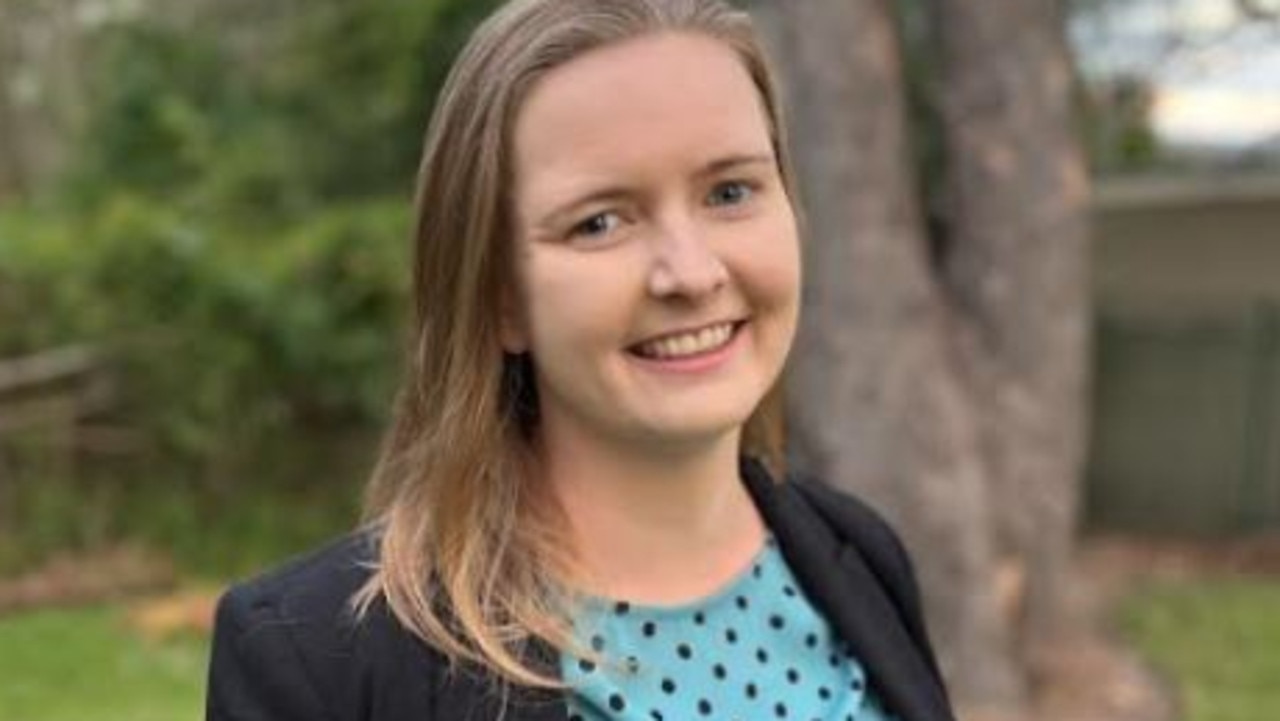
She is speaking out now to raise awareness of what survivors go through in the court system. Picture: Supplied
Speaking out
Hannah says she is speaking out now under her real name as a sign of solidarity with other sexual offence complainants to highlight the retraumatising nature of the system.
She wants the public to know that just because there might not have been enough evidence to convict a person, that doesn’t mean the complainant is lying.
Hannah says that by its adversarial nature, our legal system provokes further trauma.
And paradoxically the more traumatised a person is following an assault or crime, the less likely they are to be believed in a system which demands calm, rational interaction.
“Trauma works against people,” she says. “It manifests as confusion, an inability to remember detail, an inability to tell a straight story.
“In fact the more traumatised someone is, the worse they can appear.”
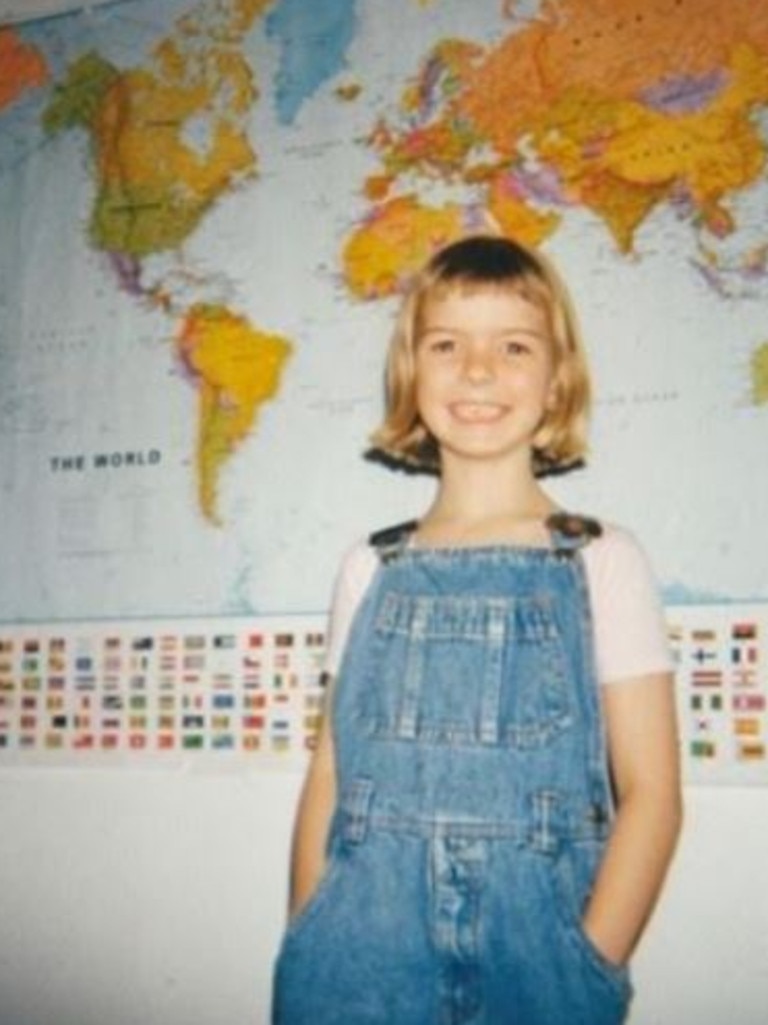
Hannah as a child. Picture: Supplied
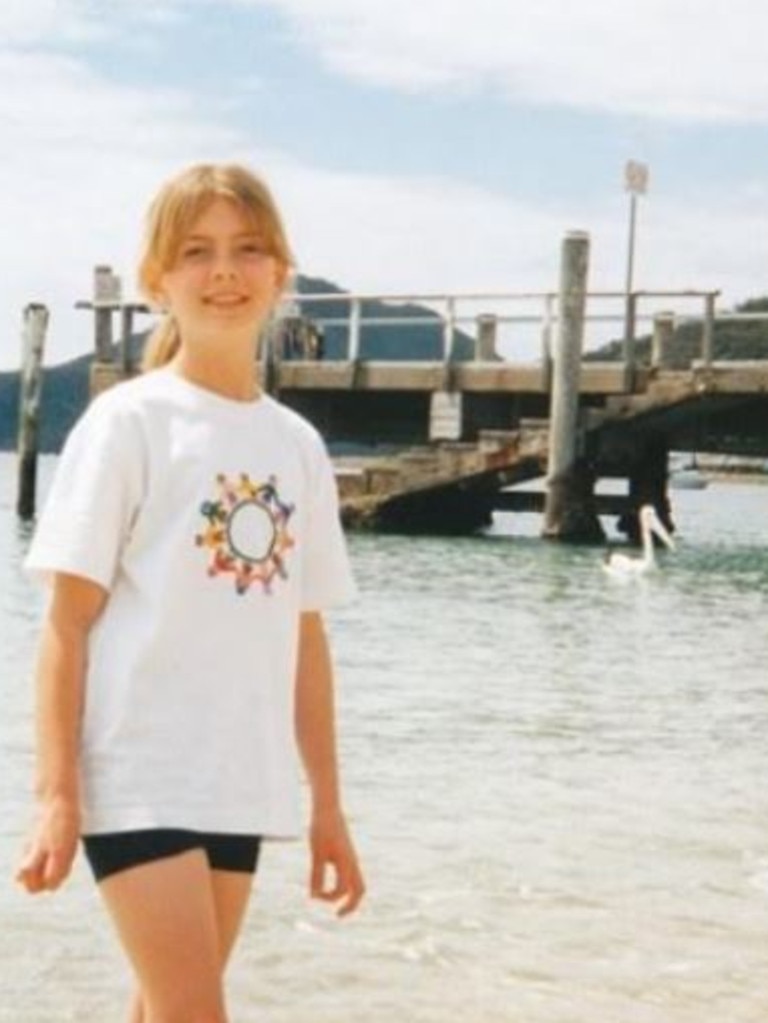
Hannah wants people to know what survivors go through. Picture: Supplied
Hannah hopes that speaking out will help dismantle stigma and shame and give her wider circle permission to open up and talk to her about what has happened in her life.
“We don’t overcome shame by silence,” she says.
“When I felt I wasn’t given space to talk about what happened the shame was compounded. Our society is one where sex is still taboo, let alone non-consensual sexual touching or acts.
“So it’s not natural to have these conversations but if you have them, it breaks down this stigma.
“I am also speaking out under my real name to be authentic to myself. This process has become a big part of my identity now. I want to give a face and a name to my story.
“I know I have support from within my profession and networks. That might not be from everyone … There may be some people who would have given me work who now won’t, and that is the professional risk you take, but I’ve reached the point where authenticity is more important to me.”
She also says that on balance, she does not regret reporting to the police.
“I had to be true to myself. I had to know I had done everything possible in my power, otherwise I couldn’t move on. I’d always be wondering about what might have happened if I reported.
“Now, at least, I can move on and say with honesty, that I did absolutely everything I could, and I took it as far as I could, and there is nothing else I could do.”
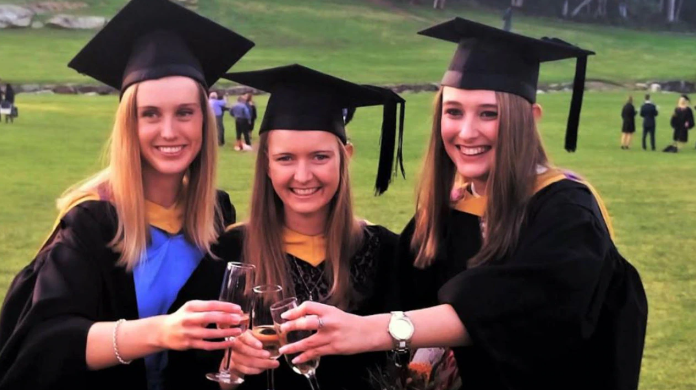

Leave a Reply